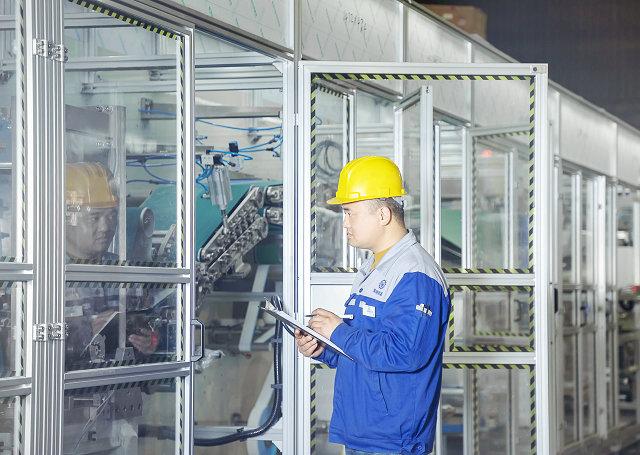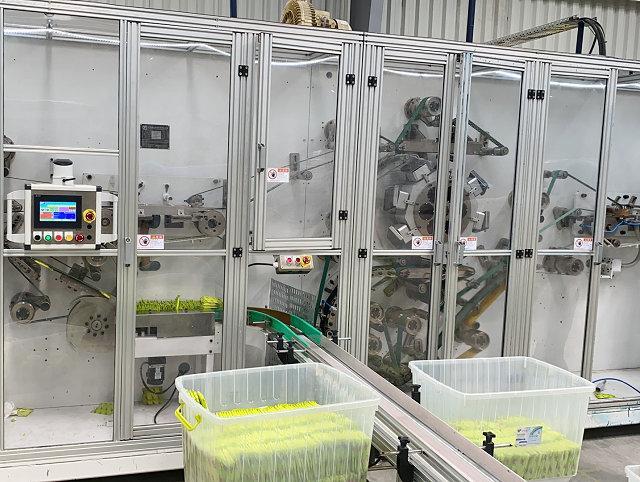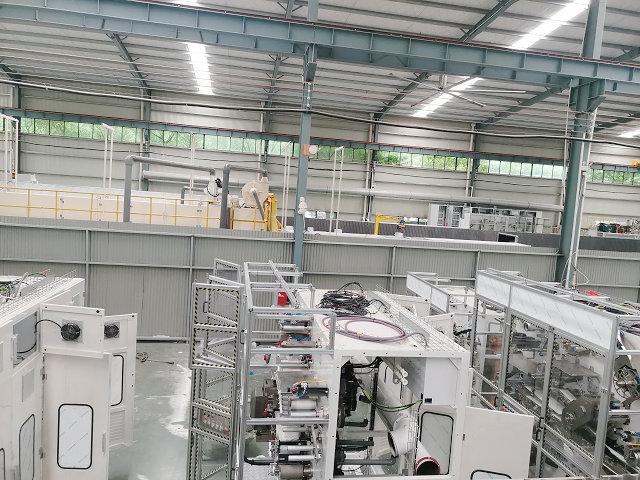Author:Haina Machinery Factory FROM:Diaper Machinery Manufacturer TIME:2023-07-27
Introduction:
The hygiene products industry plays a crucial role in meeting the daily needs of individuals, and one of the key sectors within it is the nappy (or diaper) manufacturing industry. Nappies are an essential product for infants and toddlers, providing them with comfort and protection. The production of nappies involves complex machinery that ensures high-quality products are manufactured efficiently. In this article, we will explore the applications of nappy manufacturing machines and their significance in the industry.

Nappy manufacturing machines have revolutionized the industry by introducing automated production processes. These machines incorporate advanced technologies and mechanisms to automate various stages of nappy production, including material feeding, cutting, folding, and packaging. With the help of computer-controlled systems, these machines can consistently produce a large number of nappies in a short period.
By eliminating manual labor and human errors, automated machines ensure uniformity in product quality and reduce production time. This not only increases the efficiency and productivity of manufacturers but also allows them to meet the growing demands of the market effectively. Additionally, automation minimizes production costs and optimizes resource utilization, making it a cost-effective solution for nappy manufacturers.

Nappy manufacturing machines are designed to accommodate various materials and deliver customizable products. These machines can handle different types of absorbent cores, films, and closures, allowing manufacturers to produce nappies with specific features and characteristics. Whether it's designing nappies for sensitive skin or creating eco-friendly options, the versatility of these machines enables manufacturers to meet diverse consumer preferences and market demands.
Furthermore, nappy manufacturing machines can be adapted to produce multiple sizes and shapes, catering to the needs of infants and young children of different ages. This flexibility ensures that nappy manufacturers can provide options suitable for babies at various stages of their growth and development. The ability to produce a wide range of nappies with consistent quality sets these machines apart as indispensable assets in the industry.

Another crucial aspect of nappy manufacturing machines is the integration of advanced technologies. These machines incorporate state-of-the-art systems such as sensors, robotics, and artificial intelligence to enhance their performance and efficiency. For instance, sensors enable real-time monitoring of production parameters, ensuring the consistent quality of nappies throughout the manufacturing process.
Robotics plays a significant role in automating material handling, reducing human intervention, and improving overall productivity. By utilizing robotics, these machines can handle raw materials, transport semi-finished products, and perform quality inspections with precision and speed. Moreover, the integration of artificial intelligence enables these machines to optimize production schedules, predict maintenance requirements, and adapt to changing market demands.
In conclusion, nappy manufacturing machines have transformed the hygiene products industry by providing automated production processes, versatile capabilities, and advanced technology integration. These machines have significantly improved the efficiency, productivity, and quality of nappy production, benefiting both manufacturers and consumers. As the demand for nappies continues to grow, the role of these machines becomes increasingly vital in meeting the needs of infants worldwide.
